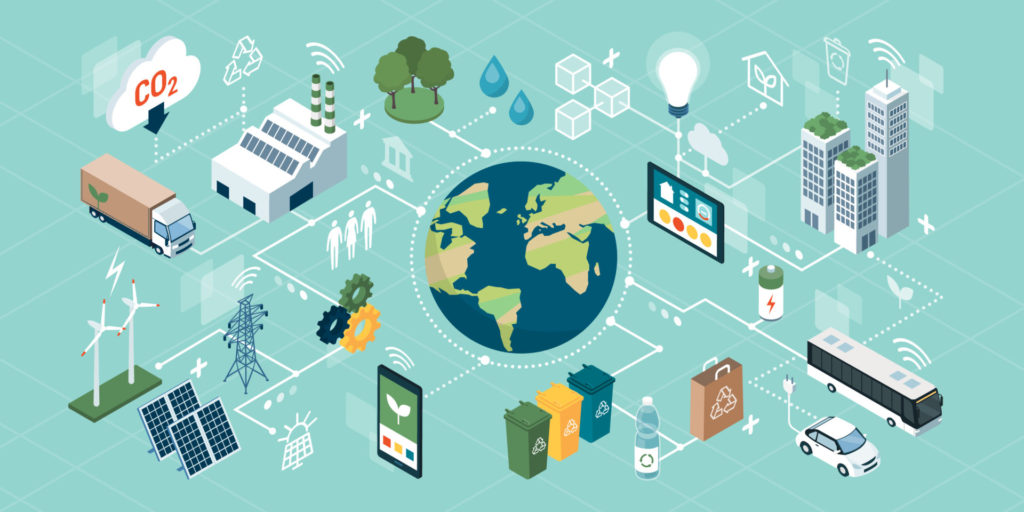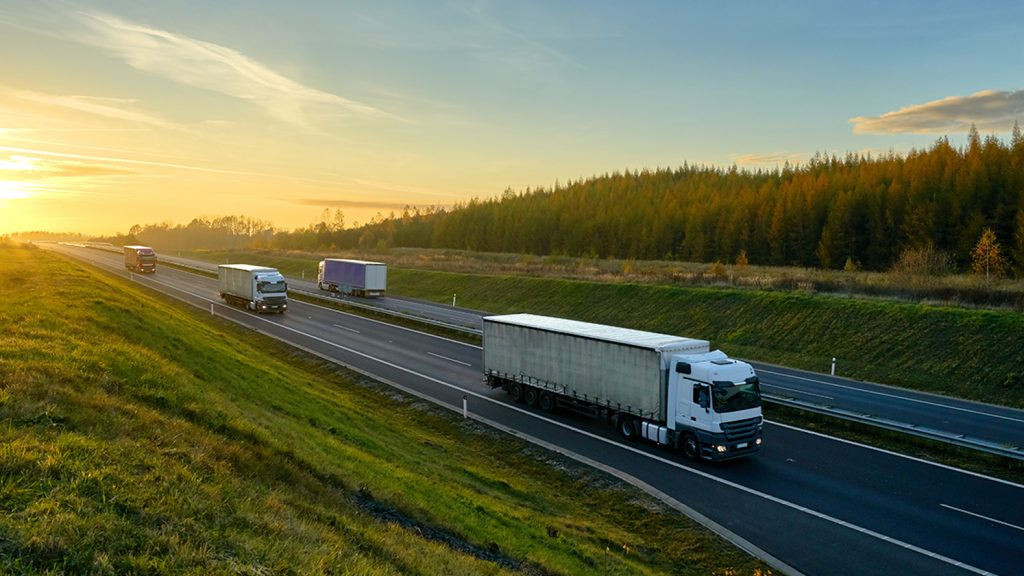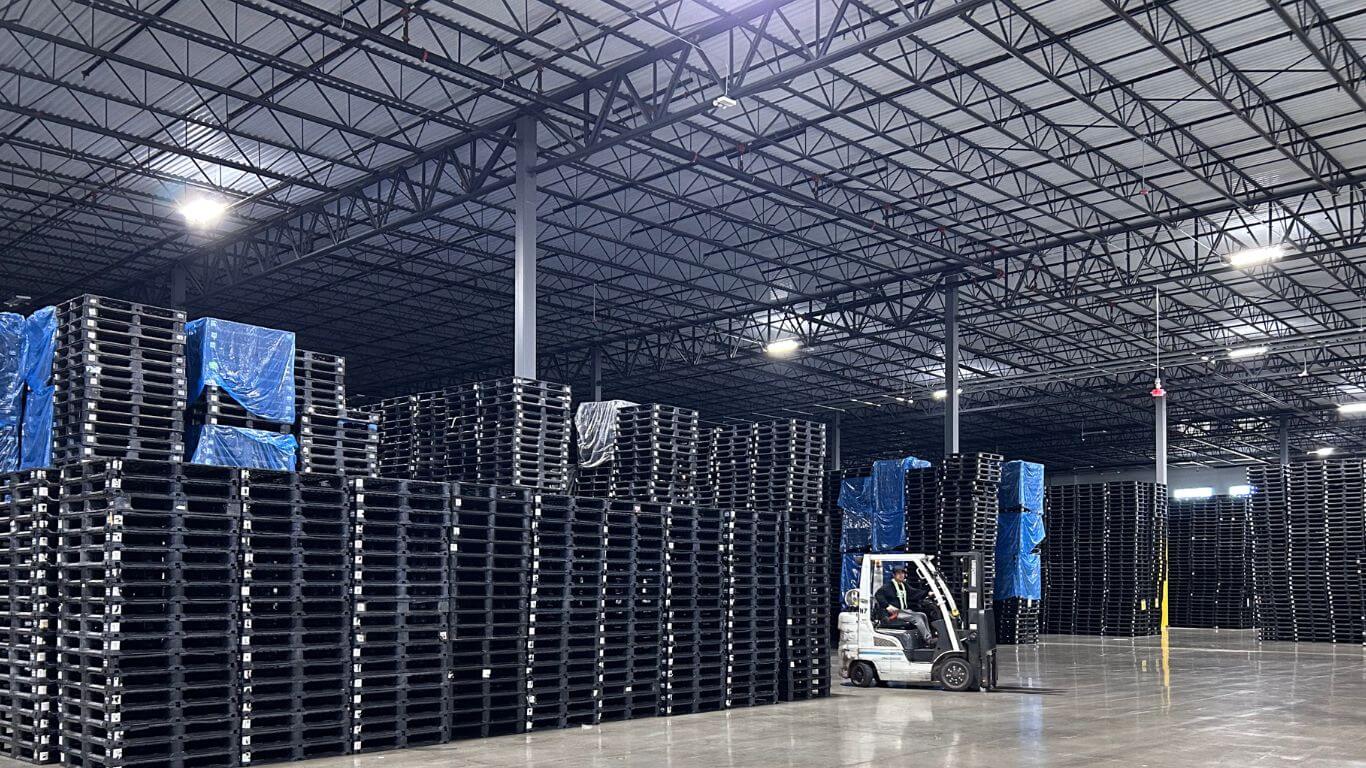Environmental logistics—practices and measures focused on lowering the impact logistics have on the planet—play an increasingly vital role in keeping supply chains safe and efficient. Many recent headlines have focused on supply chain disruptions caused by the Delta variant, but the effects of climate change have also presented logistics companies with many challenges.
Hurricane Ida put numerous roadways underwater and diverted already overstrained transport vehicle fleets to relief efforts. Flooding throughout Asia and Europe has delayed shipments on items ranging from sushi rice to chip technology. A warming planet hampers the productivity of crop harvests, causing produce prices to rise and further slowing supply chains.
Environmental logistics solutions that impact climate change include:
- Reducing vehicle fleet emissions;
- Sustainable warehouse development;
- Environmentally friendly packaging and shipping material.
Reducing Vehicle Fleet Emissions
Approximately 29 percent of greenhouse gas emissions in the United States can be traced to freight vehicle fleets. This has prompted many legislative efforts to curb vehicle fleet emissions, including California’s Advanced Clean Truck Rule, which would phase out fossil fuel fleets by 2045, and the Biden administration’s plan to halve emissions by 2030, which features generous funding for electric vehicle fleets and energy efficiency upgrades for supply chains.
Companies committed to environmental logistics can make investments in eco-friendly fleets or seek strategic partnerships with vendors engaged in reducing vehicle fleet emissions. Emerging technologies that could further transform transportation sustainability include autonomous trucking. Driverless trucks propelled by artificial intelligence (AI), with operators on board to ensure safety, can reduce vehicle fleet fuel costs by up to 10 percent. This is due to AI-generated algorithms that teach trucks to control themselves in the most fuel-efficient way, resulting in less fuel consumption and fewer harmful emissions.
Sustainable Warehouse Development
Many supply chain experts have focused on technologies that make individual warehouse sites more environmentally friendly. These include using light-emitting diode (LED) lightbulbs and internal monitoring systems that make facilities more energy-efficient, and reducing energy consumption through better insulation.
Companies committed to sustainable warehouse development also need to factor in the emerging problem of warehouse sprawl as consumer demand for deliveries surges ever upward. New warehouses utilize a lot of land and require more vehicle fleet activity, resulting in higher greenhouse gas emissions. Environmental logistical solutions to warehouse sprawl include:
- Building up, not out—Warehouse developers should focus on building sites on existing commercial property rather than on undeveloped areas, helping conserve farmland and open space;
- Building sites near transportation hubs—Warehouses positioned near transportation hubs help ensure vehicle fleets servicing them operate with top efficiency, reducing fuel consumption;
- Building sites near population centers—Making a warehouse site more accessible to its workforce, especially through public transportation, also reduces fuel consumption associated with the facility.
Environmentally Friendly Packaging and Shipping Material
Small differences in transport weight can significantly impact a logistics company’s carbon impact, as this greenhouse gas calculator demonstrates. Fortunately, companies committed to environmental logistics can invest in packaging that is both biodegradable and more lightweight than rigid metal or glass packaging. There are an increasing number of available options, including mushroom packaging made from fungus roots and farm residue and seaweed-based food packaging.
Companies seeking to reduce supply chain weight loads should also pay attention to their shipping material. Lightweight plastic pallets, for example, are generally 35 percent lighter than heavy wooden pallets.
iGPS plastic pallets can also be recycled into “new pallets,” while wood pallets often wind up in landfills after their shorter lifespans. This contributes to long-term pollution and can possibly endanger wildlife. Choosing packaging and shipping material carefully helps fight climate change while also helping reduce a company’s Total Cost of Business (TCOB).
The effects of climate change are proving increasingly disruptive to global supply chains. Companies can help combat these effects, and stay competitive, by making wise investments in environmental logistics.
Companies committed to environmental logistics use iGPS plastic pallets for all their shipping needs. Our lightweight, recyclable plastic pallets help reduce harmful emissions and your Total Cost of Business. For more information, contact us at 1-866-557-0047, email a specialist at switch@igps.net, or visit our contact page.



